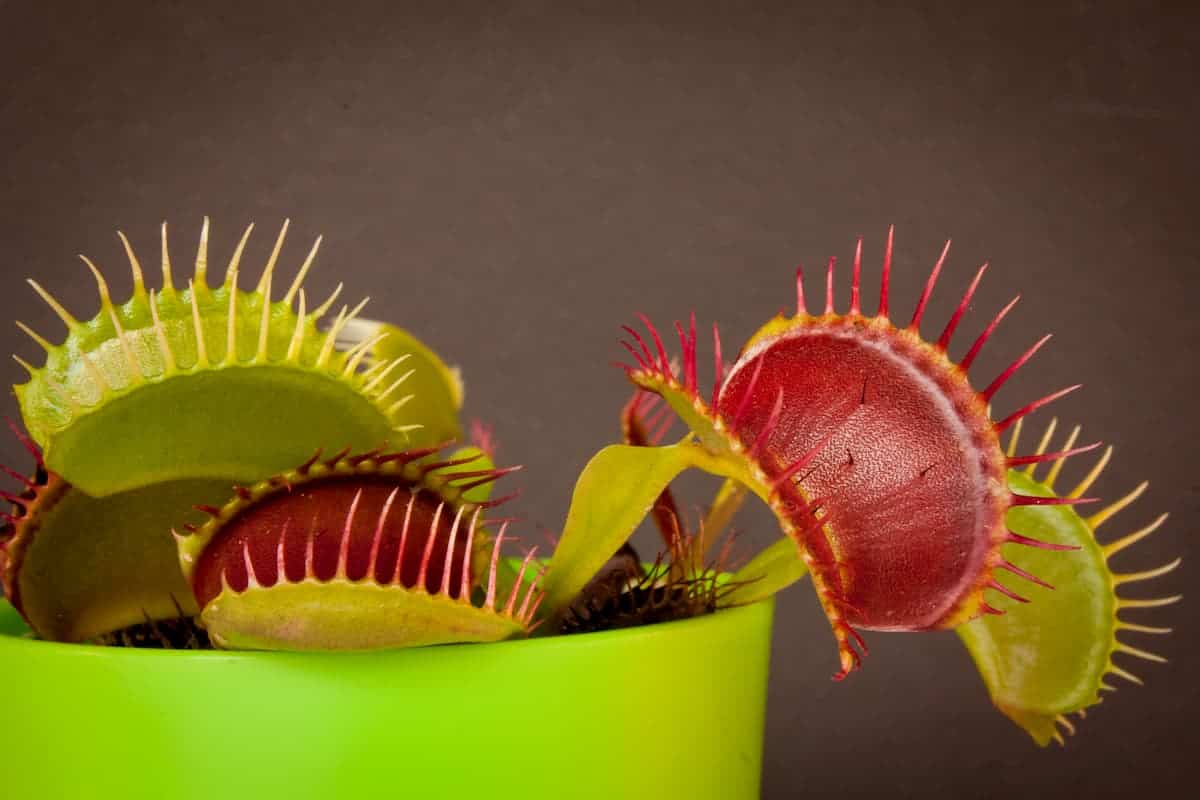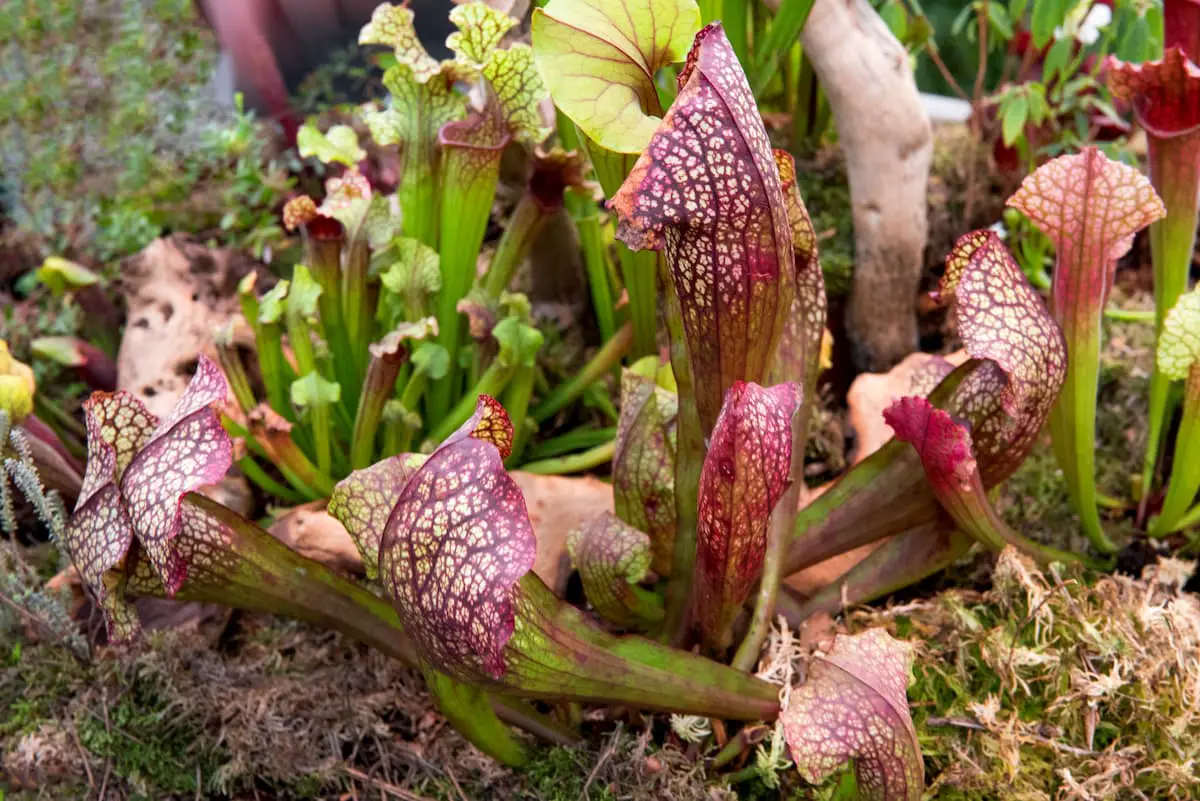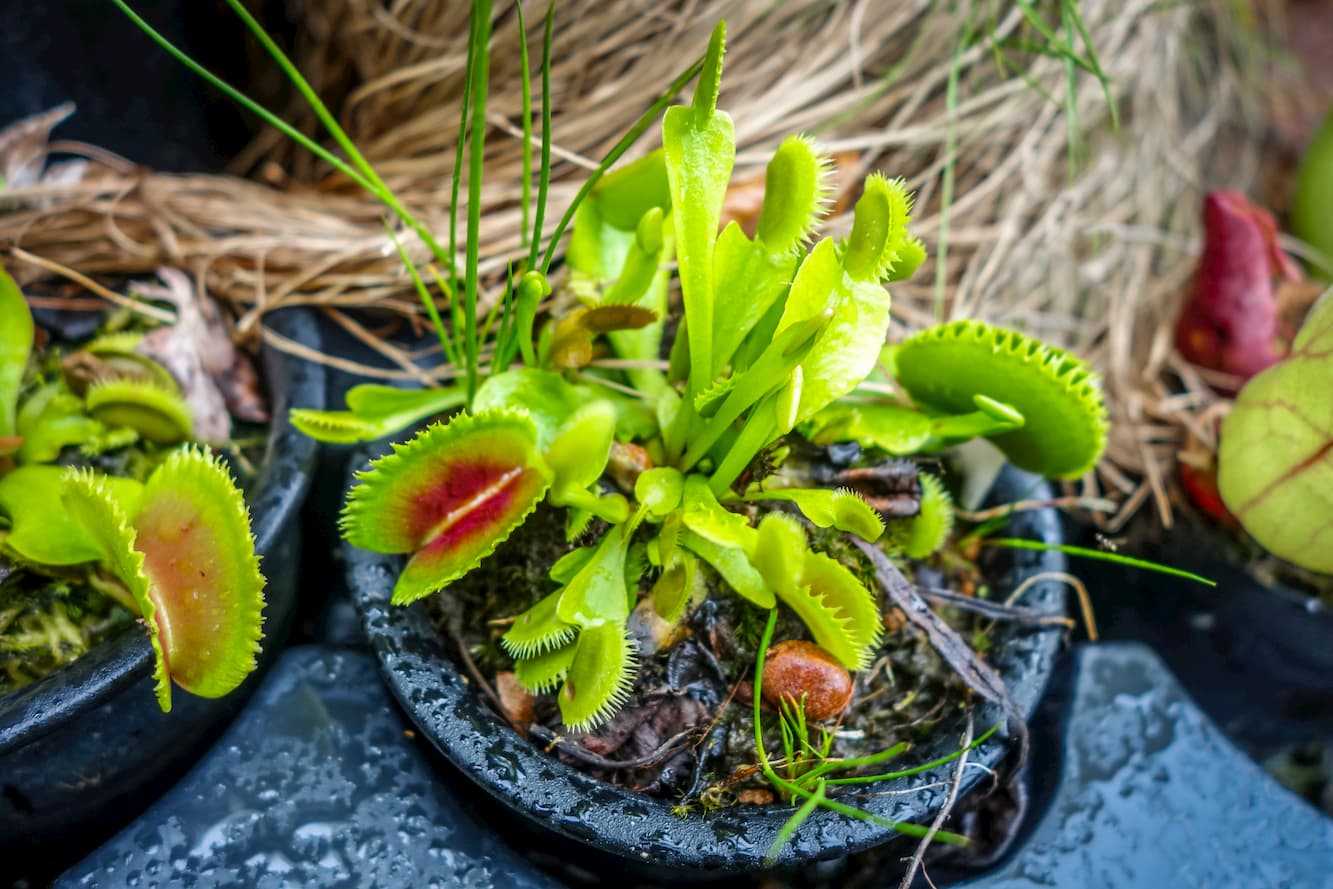Venus fly traps are known for their unique ability to catch insects and small prey, making them one of the most fascinating carnivorous plants in the world. However, many plant enthusiasts often wonder what kind of food they should offer to these plants to keep them healthy and thriving.
One common question that many people have is whether or not they can feed mealworms to Venus fly traps. The answer is yes! While Venus fly traps primarily rely on catching small insects like flies and mosquitoes, they can also eat other small arthropods such as mealworms.
In fact, mealworms are a great source of protein for these plants and can help to supplement their diet when there aren’t enough insects around. However, it’s important to note that feeding Venus fly traps mealworms should be done carefully and in moderation to avoid overfeeding or causing harm to the plant.
In this article, we’ll explore the benefits of feeding Venus fly traps mealworms and provide some tips on how to do it safely and effectively.
The Benefits Of Feeding Venus Fly Traps Mealworms
Feeding Venus Fly Traps mealworms is like giving them a power-packed protein shake. These carnivorous plants are known for their unique ability to capture and digest insects, but not all insects have the same nutritional value. Mealworms, on the other hand, are full of nutrients that can help your Venus Fly Trap thrive.
While Venus Fly Traps can survive on a diet of flies and other small insects, feeding them mealworms as an alternative diet can benefit them greatly. Mealworms are rich in protein, vitamins, and minerals that your plant needs to grow strong and healthy. And unlike other insects that may carry diseases or parasites, mealworms are a safe and nutritious option.
So if you want to give your Venus Fly Trap the best chance at thriving, consider adding mealworms to its diet. Not only will it provide the necessary nutrients for growth, but it will also keep your plant healthy and happy for years to come.
But before you start feeding your plant mealworms, it’s important to know how to do so safely.
How To Feed Venus Fly Traps Mealworms Safely
Feeding Venus Fly Traps mealworms is a great way to provide them with essential nutrients. However, it’s important to take safety precautions before doing so.
The first thing to consider is the size of the mealworms. They should be small enough for the Venus Fly Trap to handle without causing damage.
Another important aspect to consider is the source of the mealworms. It’s best to purchase them from a reputable supplier to ensure they are safe and free from any harmful toxins that could harm your plant. Additionally, it’s crucial to avoid feeding your Venus Fly Trap with other insects that have been exposed to pesticides or other chemicals.
If you’re hesitant about feeding your Venus Fly Trap mealworms, there are alternative food sources you can consider. These include small insects like fruit flies and gnats, which are also rich in nutrients but less likely to cause harm if not handled properly.
In terms of moderation and caution when feeding Venus Fly Traps mealworms, it’s important not to overfeed them. While they do require a certain amount of protein in their diet, too much can actually harm the plant by causing it to grow too quickly and become weak.
As with any new addition to your plant’s diet, start with a small amount and monitor its reaction before increasing the serving size. Remember, safety should always come first when caring for your Venus Fly Trap!
Moderation And Caution When Feeding Venus Fly Traps Mealworms
One interesting statistic to consider is that Venus fly traps only need to consume three to five prey items per year in order to survive. This means that they do not require frequent feedings and can often obtain enough nutrients from the environment. However, if you do choose to feed your Venus fly trap, it is important to exercise caution and follow proper precautions.
When feeding a Venus fly trap mealworms, there are several precautions that should be taken. First and foremost, make sure that the mealworms are appropriately sized for your plant – smaller is typically better. Additionally, avoid feeding your plant too frequently as this can lead to overfeeding and potentially harm your plant. It is also worth noting that while mealworms may seem like a natural food source for Venus fly traps, there are alternatives such as fruit flies or small insects.
If you decide to feed your Venus fly trap mealworms, it is important to understand that there are potential risks involved. While it may be tempting to see your plant devouring its prey, overfeeding or feeding inappropriate foods can lead to digestive issues and even death. By taking proper precautions and considering alternative food sources, you can help ensure the health and longevity of your Venus fly trap.
| Precautions | Alternatives |
|---|---|
| Feed small mealworms | Fruit flies |
| Avoid overfeeding | Small insects |
| Consider alternative food sources |
Remember, when it comes to feeding your Venus fly trap mealworms or any other type of prey, moderation and caution are key. By following these guidelines and understanding the potential risks involved, you can help keep your plant healthy and thriving for years to come.
Frequently Asked Questions
What Other Insects Can Be Fed To Venus Fly Traps?
Venus fly traps are carnivorous plants that primarily feed on insects.
While they’re often associated with catching flies, there are a variety of other insects that can be fed to them as well.
For instance, fruit flies and ants are alternative prey for Venus fly traps.
These tiny insects are small enough to fit in the trap’s jaws, providing essential nutrients for the plant’s growth and survival.
However, it’s important to note that not all insects are suitable for feeding Venus fly traps – some may be too large or toxic.
So if you’re looking to give your Venus fly trap a little extra sustenance, consider offering it some fruit flies or ants as an alternative prey option.
How Often Should Mealworms Be Fed To Venus Fly Traps?
Mealworms are a popular choice as pet food due to their high nutritional value.
However, when feeding them to Venus Fly Traps, it’s important to consider how often they should be given as part of their diet.
While mealworms can provide essential protein and amino acids for the plant, overfeeding can lead to digestive issues and even harm the Venus Fly Trap.
It’s recommended to feed Venus Fly Traps mealworms once every few weeks, in moderation, as part of their balanced diet.
Can Venus Fly Traps Survive Without Being Fed Insects?
Indoor and outdoor growth can make a huge difference in the survival of Venus Fly Traps. While they can thrive indoors, they truly flourish when given the chance to bask in the sun’s rays outside.
But regardless of where they grow, soil quality is key. Without proper nutrients and drainage, these carnivorous plants won’t survive.
As for feeding them mealworms or other insects, it’s not necessary for their survival. Venus Fly Traps can go weeks or even months without eating anything at all.
So if you forget to feed them, don’t worry too much – just make sure they have plenty of sunlight and good soil to grow in!
How Do You Know If Your Venus Fly Trap Is Getting Enough Food?
To determine if your Venus fly trap is getting enough food, there are a few things to consider.
Measuring growth is one way to assess if your plant is receiving adequate nutrients. If you notice that your plant has stopped growing or appears stunted, it may be suffering from a nutrient deficiency.
Additionally, if the leaves of your Venus fly trap start to turn black or brown and the traps stop closing, this could also indicate a lack of food.
It’s important to note that while feeding mealworms or other insects can supplement their diet, it’s not necessary for their survival as they can obtain nutrients from photosynthesis.
Can Feeding Venus Fly Traps Mealworms Harm Them In Any Way?
When it comes to feeding Venus Fly Traps, it’s important to ensure they are getting the proper nutrition.
While mealworms may seem like a common choice for feeding carnivorous plants, there are actually alternative options available that can meet their nutritional requirements without any harm.
Some mealworm alternatives include crickets, ants, and even small pieces of raw fish or meat.
It’s best to avoid feeding anything too large or tough for the plant to digest, as this can lead to damage.
Overall, by choosing the right foods and monitoring their intake, you can help your Venus Fly Trap thrive without any negative effects from their diet.
Conclusion
In conclusion, Venus Fly Traps can indeed be fed mealworms, but they are not the only insects that can satisfy their hunger. Other options include crickets, fruit flies, and ants.
It’s important to remember that these plants do not need to be fed often and can survive without any insect meals. Think of a Venus Fly Trap as a person who enjoys an occasional treat but doesn’t require it to survive.
Just like how we need food for energy and sustenance, these carnivorous plants rely on insects for nutrients to grow and thrive. But just like how too much junk food can harm our bodies, overfeeding Venus Fly Traps with mealworms can lead to digestive issues and ultimately harm the plant.
So let’s treat these fascinating creatures with care and give them just enough nourishment to keep them healthy and happy.




Leave a Reply